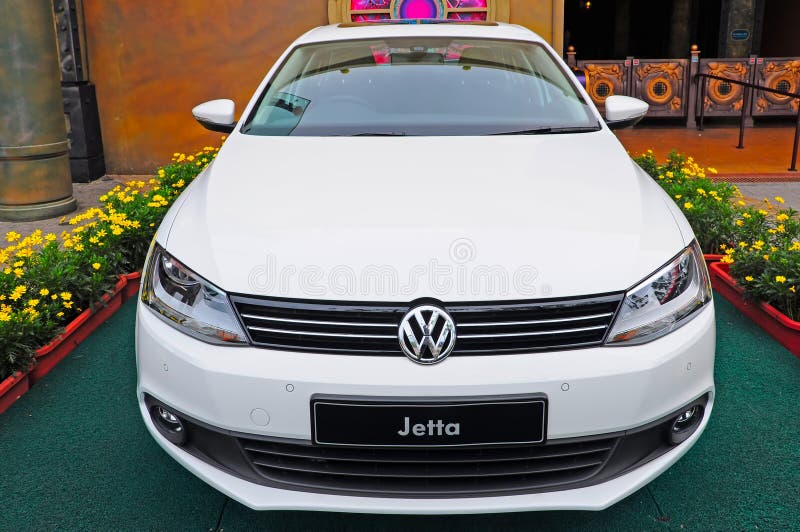Revamp Your Ride with a Volkswagen Jetta Wrap: The Ultimate Guide
I. Introduction
The Volkswagen Jetta is a popular car among car enthusiasts and owners alike. It’s known for its fuel efficiency, durability, and style. However, if you want to take your Volkswagen Jetta to the next level, you should consider getting it wrapped. In this blog post, we’ll discuss the benefits of wrapping your Volkswagen Jetta, how to choose the right wrap, how to install it, and how to maintain it. We’ll also cover common problems with Volkswagen Jetta wraps and how to avoid them.

II. Benefits of Wrapping Your Volkswagen Jetta
A. Protection
One of the main benefits of wrapping your Volkswagen Jetta is protection. The vinyl wrap acts as a barrier between your car’s paint job and the elements. It protects your car from scratches, dings, and other types of damage. It also protects your car’s paint from fading due to exposure to sunlight and other environmental factors.
B. Customization
Another benefit of wrapping your Volkswagen Jetta is customization. With a vinyl wrap, you can choose from a wide range of colors, textures, and designs to create a unique look for your car. You can even choose to have custom graphics or logos printed onto the vinyl wrap to make your car stand out even more.
C. Cost-Effective
Finally, wrapping your Volkswagen Jetta is cost-effective. A high-quality vinyl wrap can cost a fraction of what a custom paint job would cost. Plus, it’s much easier to change the look of your car with a vinyl wrap than it is with a paint job. If you ever decide you want a different color or design for your car, you can simply remove the vinyl wrap and apply a new one.
III. Choosing the Right Wrap for Your Volkswagen Jetta
A. Type of Wrap
There are two main types of vinyl wraps: cast vinyl and calendared vinyl. Cast vinyl is more expensive but it’s also more durable and easier to apply. Calendared vinyl is cheaper but it’s also less durable and harder to apply. If you want your wrap to last a long time and look great, we recommend investing in a high-quality cast vinyl wrap.
B. Quality of Material
The quality of the vinyl wrap material is also important. Look for a vinyl wrap that is specifically designed for automotive use. It should be UV resistant, weather-resistant, and able to withstand normal wear and tear. We recommend choosing a vinyl wrap with a warranty of at least three years.
C. Design
Finally, consider the design of the wrap. Choose a design that complements the look of your Volkswagen Jetta. If you’re not sure what design to choose, you can work with a professional designer who can help you create a custom design that meets your needs.
IV. How to Install a Volkswagen Jetta Wrap
A. Preparation
Installing a wrap on your Volkswagen Jetta can be a DIY project, but it requires attention to detail and patience. Before starting the installation process, make sure to have all the necessary tools and materials on hand. You will need a heat gun, squeegee, razor blade, and vinyl wrap, among other items. It's also important to make sure that your vehicle is clean and free of dirt, debris, and wax. Any imperfections on the surface can affect the final outcome of the installation.
B. Installation
Process The installation process for a Volkswagen Jetta wrap typically involves wrapping each panel individually. It's important to start with the largest and flattest panels, such as the hood and roof. Apply the vinyl wrap slowly and evenly, using a squeegee to remove any air bubbles or wrinkles. Use a heat gun to stretch the vinyl around curves and contours, but be careful not to overheat the material. Once you've finished wrapping each panel, use a razor blade to trim any excess material.
C. Post-Installation
Care After the wrap has been installed, it's important to take good care of it to ensure it lasts as long as possible. Wait at least 24 hours before washing your car to allow the wrap to set. When washing the vehicle, use a gentle soap and avoid high-pressure water or abrasive materials. You can also apply a protective film to high-contact areas, such as the door handles and mirrors, to prevent scratches and damage.
V. Maintaining Your Volkswagen Jetta Wrap
A. Regular Cleaning
Keeping your Volkswagen Jetta wrap clean is essential to maintain its appearance and prevent damage. Regularly wash your car with a gentle soap and warm water, and avoid using harsh chemicals or abrasive materials. You can also use a quick detailer spray to remove any dirt or grime between washes.
B. Avoiding Damage
To avoid damage to your wrap, it's important to be mindful of the driving conditions and environment. Avoid parking your car in direct sunlight for extended periods of time, as this can cause the vinyl to fade or bubble. Also, be careful when driving in areas with debris or construction, as rocks and other materials can cause scratches and tears in the material.
C. Inspections Regular
inspections of your Volkswagen Jetta wrap can help identify any potential issues before they become major problems. Look for signs of peeling, bubbling, or fading, and address these issues promptly. If you notice any damage or imperfections, consider contacting a professional to repair or replace the affected area.
VI. Common Problems with Volkswagen Jetta Wraps
A. Peeling
One common problem with Volkswagen Jetta wraps is peeling. This can occur when the vinyl is not properly installed or when there is damage to the material. If you notice peeling, it's important to address the issue promptly to prevent further damage to the wrap.
B. Bubbling
Bubbling is another common issue with Volkswagen Jetta wraps. This can occur when air pockets form under the vinyl, typically due to improper installation. Bubbles can also form when the vinyl is exposed to high temperatures or sunlight. To prevent bubbling, make sure to install the wrap properly and avoid parking your car in direct sunlight.
C. Fading
Fading is a common issue with any type of wrap, including Volkswagen Jetta wraps. Exposure to sunlight and harsh weather conditions can cause the vinyl to fade over time. To prevent fading, park your car in a covered area and avoid exposing it to direct sunlight for extended periods of time.
D. Scratching:
Scratching is one of the most common problems with vinyl wraps, and the Volkswagen Jetta wrap is no exception. To prevent scratching, avoid parking your car in areas with debris or close to other vehicles. If you do notice scratches on your wrap, don't panic. Most can be repaired with a simple touch-up kit.
VII. Conclusion:
An auto wrap is a great way to add a unique touch to your Volkswagen Jetta. By choosing a quality wrap, following proper installation and maintenance procedures, and being mindful of common problems, you can enjoy a beautiful, long-lasting wrap for years to come. Remember to always choose a reputable provider and installer, and don't hesitate to seek professional help if you need it.

